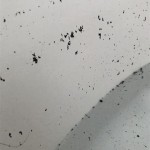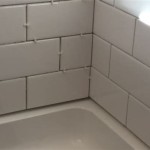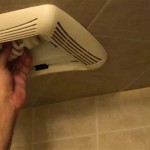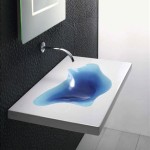How to Clean Stains in Bathroom Sinks
Bathroom sinks are a breeding ground for bacteria and grime, especially if they're not cleaned regularly. Hard water stains, soap scum, and toothpaste splatter can quickly turn a pristine white sink into a dingy mess. Fortunately, cleaning bathroom sink stains is a relatively easy task that can be tackled with common household items.
Regular Cleaning
To prevent stains from building up in the first place, it's important to clean your bathroom sink regularly. A simple solution of warm water and dish soap is usually enough to remove everyday dirt and grime. For tougher stains, you can use a commercial bathroom cleaner or a DIY solution made with equal parts white vinegar and water. Rinse the sink thoroughly with clean water after cleaning.
Hard Water Stains
Hard water stains are caused by the buildup of minerals in the water, and they can be particularly difficult to remove. To tackle hard water stains, you'll need a slightly more acidic solution. Try using a solution of white vinegar and water (1:1 ratio) or a commercial hard water stain remover. Apply the solution to the stain and let it sit for 15-20 minutes. Scrub the stain with a soft brush or sponge, then rinse thoroughly with clean water.
Soap Scum
Soap scum is another common bathroom sink stain. It's caused by the buildup of soap residue and body oils. To remove soap scum, you can use a commercial bathroom cleaner or a DIY solution made with equal parts white vinegar and water. Apply the solution to the stain and let it sit for 15-20 minutes. Scrub the stain with a soft brush or sponge, then rinse thoroughly with clean water.
Toothpaste Splatter
Toothpaste splatter is a common nuisance that can be difficult to remove. To tackle toothpaste splatter, you can use a damp cloth or sponge to wipe away the splatter. If the splatter is dried on, you can use a toothbrush or a soft brush to gently scrub it away. Rinse the sink thoroughly with clean water after cleaning.
Disinfecting
Once you've removed the stains from your bathroom sink, it's important to disinfect it to kill any remaining bacteria. You can use a commercial bathroom disinfectant or a DIY solution made with equal parts white vinegar and water. Apply the solution to the entire sink and let it sit for 10-15 minutes. Rinse the sink thoroughly with clean water after disinfecting.
Tips for Preventing Stains
Here are a few tips to help prevent stains from building up in your bathroom sink:
- Rinse the sink with clean water after each use.
- Wipe down the sink with a damp cloth or sponge regularly.
- Use a commercial bathroom cleaner or a DIY solution to clean the sink weekly.
- Avoid using abrasive cleaners or sponges, which can damage the sink's surface.
- Install a water softener to reduce the amount of minerals in your water, which can help prevent hard water stains.

How To Remove Stains From A Porcelain Sink Isavea2z Com

No More Hard Water Stains How To Easily Clean Your Porcelain Sink In Minutes Vooki

How To Get A Clean Porcelain Sink And Remove Rust Stains Too Mom 4 Real

How To Remove Rust Stains From A Porcelain Tub Or Sink Cabana State Of Mind

How To Get A Clean Porcelain Sink And Remove Rust Stains Too Mom 4 Real

How To Clean And Shine A Porcelain Sink 10 Steps With Pictures

How To Clean A Bathroom Sink 12 Best Tips

How To Clean Bathroom Sink Counters Daily Routine Periodic Deeper Cleaning Tasks

How To Clean A Bathroom Sink 12 Best Tips

How To Remove Rust Stains From Toilets Tubs And Sinks
Related Posts







